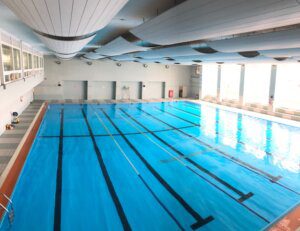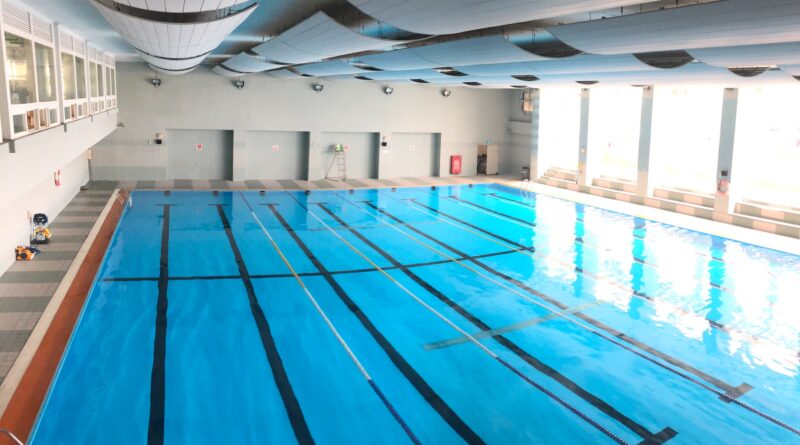3 Ways Therapy Pools Enhance Senior Living
JADCOM Media posts and/or links to retailers can be advertising, sponsored, or affiliate links.
We may earn a small commission from them. Thank you.
Global life expectancy is growing and changing the medical field. Elderly individuals are experiencing more physical and mental health problems as their life span increases. In response, medical professionals are establishing unique treatment practices, including Therapy Pools, to improve their patients’ quality of life.
You may use aquatic therapy exercises to treat your patients. Exercising in pools can lower their risk of injuries while improving their cognitive functions. There are many benefits of aquatic therapy for seniors, which influence medical field advancements.
What Is Pool Therapy for Seniors?
Aquatic therapy is a type of physical therapy performed in a pool. Trained physical therapists use the practice to treat patients with physical, cognitive and emotional problems. Pool therapy can improve seniors’ flexibility, balance, coordination, agility and cognitive functions.
Only licensed physical therapists can lead aquatic therapy sessions. The practice helps seniors build their strength and increase their blood flow. Warm water also relaxes muscles and increases peripheral circulation.
The density of water also creates resistance, which helps seniors build muscular strength. Water’s buoyancy additionally takes the strain off joints and bones. It helps improve their comfort, stamina and resilience while exercising.
Pool therapy generally occurs at senior living complexes, recreational facilities and medical centers. Some senior communities have licensed physical therapists on staff to perform aquatic therapy, while other patients receive treatment off-site.
Aquatic Therapy Exercises

You can use various exercises in the pool to treat elderly patients. A common aquatic therapy exercise is water jogging or walking, in which people move forward in waist-high water for about 10 steps.
Water walking and jogging may be accessible for patients with moderate mobility. They may hold on to kickboards or noodles while walking to improve their balance. You may also guide seniors through forward and side lunges to build muscular strength.
Individuals can hold onto the edge of a pool while performing lunges for support. They may extend one leg in front of them without letting their knees past their toes.
Another common aquatic therapy exercise is deep water cycling. People wrap noodles around their backs to support their upper bodies and move their legs like riding a bike to increase their heart rate, mobility, flexibility and muscular strength.
Benefits of Aquatic Therapy for Seniors
General care providers and psychiatrists recommend aquatic therapy to treat various physical and mental disorders. Elderly patients with scoliosis, dementia, arthritis, osteoporosis, Alzheimer’s disease, depression and tendonitis may benefit from aquatic therapy.
Pool exercises can improve patients’ physical health and decrease their risks of cardiovascular disease. It also increases respiratory functions, reducing asthma attacks’ frequency and severity. Many patients experience mood boosts during aquatic exercise.
Increasing blood flow and endorphins reduces feelings of depression and other adverse emotional conditions. Aquatic therapy is also beneficial for patients with different mobility levels and is a painless way to exercise.
Here are three ways therapy pools can help people you are caring for.
1 Cognitive Improvements
Aquatic therapy can enhance senior living by reducing cognitive distress. Researchers conducted drawing and memory projects for hydrotherapy patients. They compared their abilities to perform mirror drawing tasks and recite memorized words in and out of pools.
Professionals found seniors displayed stronger memory functions and grip strength in pools, and other researchers discovered their general brain activity increased in aquatic environments. They believe cognitive improvements come from increased blood flow during these exercises.
Patients with Alzheimer’s disease and dementia may benefit from pool therapy, which improves cognitive health. Physical exercise also increases long-term memory functions. Hydrotherapy is a low-impact form of exercise, which helps seniors access its mental and physical benefits.
2 Physical Improvements
Aquatic therapy also improves senior living by treating physical conditions. Patients can enhance their range of motion during treatment by exercising in water. Their buoyancy reduces gravity’s adverse effects on joints.
Warm water also improves seniors’ mobility by relaxing sore or tight muscles. Patients recovering from surgery, with tendonitis and experiencing pain may benefit from pool therapy. Aquatic exercises can help seniors grow muscle without increasing their risk of additional injuries.
3 Emotional Improvements
Aquatic therapy can also improve people’s mental states. Submerging individuals in water helps them access “blue mind,” which signifies the state of peace and relaxation individuals experience while swimming and floating.
Blue mind decreases symptoms of stress, anxiety and depression. Cardiovascular exercises also boost blood flow to the brain. As a result, patients may experience less confusion and memory struggles while engaging in aquatic activities.
Minimizing cognitive struggles decreases stress and depression in seniors. Aquatic therapy also benefits caretakers’ and professionals’ mental health. Pool therapy can reduce your own stress levels by improving your patient’s mood and emotional state.
Is Aquatic Therapy Safe?
Many doctors and psychiatrists recommend aquatic therapy for seniors because it is a safe form of exercise. Pool therapy is gentle and causes limited impacts on patients’ bones and joints. Licensed physical therapists can add floatation devices to their aquatic exercise routines and decrease the risk of drowning.
Individuals may also enhance pool therapy’s safety by ensuring a lifeguard is on duty at all times. Relying on trained professionals to keep seniors safe can decrease stress and anxiety during an aquatic therapy session.
Is Aquatic Therapy Cost-Effective?
Aquatic therapy because it’s a cost-effective treatment option. Using a recreational pool for physical therapy decreases its price. Patients can also use most insurance plans to cover session costs.
Engaging in routine aquatic therapy programs also decreases individuals’ risk of injury, which can prevent future medical costs.
Finding the Best Aquatic Therapy Program for Your Patients
You can find the best aquatic therapy programs for your patients by consulting local physical therapists. Caregivers should also read online reviews before signing up for programs. You can additionally ask for recommendations from general doctors to locate qualified professionals.
It’s a good idea to call insurance agents to find aquatic therapists in your patient’s network. Then, prepare your family member, friend or patient for a session. You can explain the top benefits of aquatic therapy for seniors to increase their willingness to engage and get the most out of their water workouts.

About the Author
Beth Rush
Beth Rush is the Managing Editor and content manager at Body+Mind.
Body+Mind features articles about diet, fitness, mental health, parenting and health care.
Be Our Next Contributor!
If you would like to contribute to JADCOM Media in one of our existing sections – or would like to create a new one – review our Guest Contributor Guidelines. JADCOM Media’s web properties cover a wide range of topics and one of them might be just right for you!




